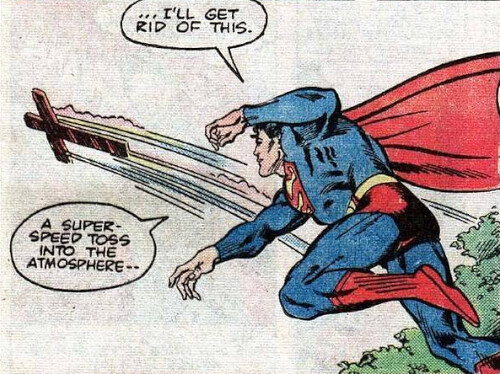
This post comes to us from Taylor Mertins:
A clergy colleague told me on the phone last week, “Our online worship numbers have gone down week after week even though I keep telling my people to invite more people, and to pray harder, and to read their Bibles. None of it seems to work … I feel like I’m losing my religion.” My pastoral training told me to listen attentively, to offer little (if any) advice, and to pray at the end. Which I did, faithfully. But what I really wanted to say was this: “Maybe losing your religion wouldn’t be such a bad thing …”
From that time on, Jesus began to show his disciples that he must go to Jerusalem and undergo great suffering at the hands of the elders and the chief priests and scribes, and be killed, and on the third day be raised. (Mk 8:31)
But Peter? Peter wasn’t having any of that. “Um, Jesus, Lord, I don’t mean to interrupt but, are you out of your mind? If you’re the Messiah I’ve confessed you to be, then you know that you can’t die. That’s losing. And in the kingdom you promised us there’s supposed to be nothing but winning!”
“Pete,” the Lord calmly intoned, “get out of my way! You’re stuck on earthly things, but the kingdom is bigger and better than your feeble little head can imagine.” Then Jesus looks out at everyone else, “Hey, listen up. This is important. If you want to be part of this whole turning-the-world-upside-down endeavor, then your world needs to get flipped right now. If you want to save your lives, go find some other teacher. But if you’re willing to accept that this life ain’t much to begin with, that’s what actually leads to salvation. Because, in the end, you can try to perfect yourself, but it won’t even come close to what I can do through you.”
It’s somewhat comforting to know we’ve struggled with Jesus’ mission of world-turning since the very beginning. Peter was unable to imagine the strange new world inaugurated in God’s Son because he was so wedded to the way things were. Notice: Jesus doesn’t command his followers to take up their crosses and then begin a five-step program toward spiritual formation. He doesn’t require them to sit for hours on end studying the scriptures so that all of the secrets might be revealed. He doesn’t compel them to become the best versions of themselves by abstaining from everything wrong with the world.
Instead he says, “Follow me.”

A fair number of us who call ourselves Christians tend to have a theology of Peter far more than a theology of Jesus. Which is just another way of saying, we are also wedded to the ways of the world, to the ways we discern what is and isn’t successful, and we continue to act, think, and speak like Peter. We come to worship week after week expecting to hear about our need to shape up, our need to start reading our Bible daily, our need to fix our problems. We proclaim and receive a gospel where we are saved by our efforts to live the good and righteous life.
But that’s not the Gospel of Jesus Christ. The Gospel of Jesus Christ is the strange good news that we are saved in our deaths. Karl Barth, the Swiss Reformed theologian who wrote the Church Dogmatics, spent some of his final years humbly preaching to prisoners in jail in Basel, Switzerland. In one such sermon, near the end of his life, Barth reflected on how all the crowning achievements of a person’s life don’t amount to much of anything in the end. He said,
Whether the achievement of a man’s life is great or small, significant or insignificant — he will one day stand before his eternal judge, and everything that he has done and performed will be no more than a mole hill, and then he will have nothing better to do than hope for something he has not earned: not for a crown, but quite simply for gracious judgment which he has not deserved … we cannot believe in our characters or in the good in ourselves. We cannot even believe in our own faith … We can and may believe only that God is for us. (Call For God, 16-17)
No matter how good we are or how bad we are, we all will stand before the throne and we will have nothing else to rely on, not our works and not our achievement but only the mercy of God. That’s why Jesus can look out at the crowds and tell them to lose their lives for the Good News because the only One who can redeem their lives is him. No amount of good works could ever put us back in God’s good graces; it’s only the unknowable love of God in Christ Jesus that makes us holy and becomes the mercy seat by which our lives and deaths become transformed. Martin Luther once wrote, “The law says, ‘do this’ and it is never done. Grace says, ‘believe in this,’ and everything is already done.”
The world is forever telling us to do more, to be better, to earn, produce, and reform, and things largely stay the same. Jesus, on the other hand, is forever telling us that the most important thing has already been finished, the only thing we have to do is trust him. Peter, like us, wants so desperately to be the master of his own fate, he wants to be in control of what happens and to whom. His imagination of the Kingdom of God is limited by his imagination of earthly kingdoms. But Jesus didn’t come to bring us more of the same.
He came to raise the dead. And the dead can’t raise themselves.

In the above exchange between Peter and Jesus, Peter is losing his religion. Religion, properly understood, is the stuff we must do in order to get a Higher Power to do something for us. And Jesus takes all of Peter’s religion, his former understanding of the way things work, and he flushes them down the toilet. In a sense Jesus says to Peter, “You don’t get it. You’re so obsessed with it making sense that you think you know what I have to do and what you have to do. But here’s the deal, Pete — I’m going to do everything for you and for everyone else.”
The good news of Jesus Christ is that God loves us whether we stop sinning or not, because our sins are no problem for the Lord who takes away the sins of the world and nails them to his cross. The good news of Jesus Christ is that all the earthly means and measures of success don’t mean beans in the Kingdom of God because the Lord has already gone and accepted every last one of us in his Son and loves us in spite of ourselves.
The good news of Jesus Christ is that even our deaths can’t stop the Lord from getting what he wants because the Lord works in the business of raising the dead. We can spend our whole lives in fear, like Peter, wondering if we’ll ever measure up to the expectations of the world. But Christ comes into the midst of our lives, offering a word of transformation, “Follow me.” Jesus didn’t come to bring about a better version of whatever already existed. Instead he came to transform the entire cosmos. We can follow Jesus and we can lose our lives because Jesus came to raise the dead. And that’s good news.

COMMENTS
6 responses to “Losing Our Religion, Finding Good News”
Leave a Reply













Excellent!
This is the most superbly written article on what it actually means to be a Christian that I have ever read. We think that Christ needs our 1% contribution to complete His 99% salvation work on our behalf. In other words we become our own savior because our effort seals the deal. However, nothing could be further from the truth. Titus 3:5 reads, “He saved us, not on the basis of deeds we have done in righteousness, but according to His mercy”. This verse is composed of absolutes. It is ALL mercy and has nothing to do with our works. Until we understand this we cannot have true peace.
Wonderful! This can never be preached enough. God bless.
Thank you for sharing such an important, grace-filled and timely word of hope. That was powerful, 200 proof grace and an important reminder that salvation is by faith, nothing more, nothing less, “pistis Christou,” which I like to think of as both faith in Christ and the faith of Christ which enables our faith.
Your line “Religion, properly understood…” I think might be more accurately conveyed as “Religion, as all too often commonly understood and sadly practiced” instead. As you know the word “religion” comes from the Latin to bind, reconnect, while other sources link its etymology to choose, go over again, etc. To be overly reductionist one can make the argument that being spiritual, rather than religious and spiritual, leads one to a Jesus and me kind of faith. Augustine is credited to saying “The Church is a whore, but she is my Mother” although there is no record of him actually writing that. Tony Campolo quotes him that way and long before Campolo Dorothy Day wrote, “The church may be a harlot at times, but she is my mother.” Augustine in sermon 213 on the Creed did write in that vein but not with that conclusion.
So let’s not throw the baby out with the bathwater. As Barth himself conveyed in different ways:
“Ecclesia semper reformanda”: the church is always to be reformed. From John Wesley’s Sermon 7, “The Way to the Kingdom”: . But true religion, or a heart right toward God and man, implies happiness as well as holiness. For it is not only “righteousness,” but also “peace and joy in the Holy Ghost.” What peace? “The peace of God,” which God only can give, and the world cannot take away; the peace which “passeth all under-standing,” all barely rational conception; being a supernatural sensation, a divine taste, of “the powers of the world to come;” such as the natural man knoweth not, how wise soever in the things of this world; nor, indeed, can he know it, in his present state, “because it is spiritually discerned.” It is a peace that banishes all doubt, all painful uncertainty; the Spirit of God bearing witness with the spirit of a Christian, that he is “a child of God.” And it banishes fear, all such fear as hath torment; the fear of the wrath of God; the fear of hell; the fear of the devil; and, in particular, the fear of death: he that hath the peace of God, desiring, if it were the will of God, “to depart, and to be with Christ.”
So beautiful and comforting Taylor – thank you. And that Barth quote too!
‘If anyone would follow me, let him deny himself, take up his cross daily and follow me’, thus Luke’s gospel quotes the invitation and challenge of Christ to His listeners. Prior to the ‘following’, there is the denying of self and the continual taking up of our cross day by day. Then, according to Christ’s teaching here, we are then in position to follow (accompany Him on the road, as the greek verb implies).